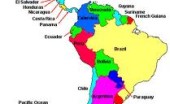Johannah Bernstein post: "eternally proud of my father’s extraordinary aeronautical engineering. legacy. here is a photo of the Canadair Water…
Wednesday Night #1744
Written by Diana Thebaud Nicholson // August 5, 2015 // Wednesday Nights // Comments Off on Wednesday Night #1744
FINALLY, on Sunday morning*, Stephen Harper put an end to the conjecture about WHEN the writ would be dropped.
As far as we can see, rather than putting the citizenry out of its misery, the much-anticipated (by the pundits, pollsters and politicians) action on Sunday has generated one of two reactions. According to some media interviews with wo/man-in-the-street, or market, barbecue, sports event, festival … many people just don’t care (hey, it’s summer!), while others are downright grumpy about the prospect of the longest election campaign in living memory with the consequent extra costs to the taxpayer as well as to the parties. In our opinion, the long campaign will prove to be more of an irritant to the voter and by October 19 the patience -let alone, interest- of many will be worn thin, and they will simply tune-out. What will this mean? Lower turnout, more votes for fringe parties, massive switches in allegiance? Or simply same-old? Unlike the pontificators, we have no idea.
Compounding the problem is the confusing situation surrounding the debates. Who will/won’t show up, who will/won’t be able to view them and how. The first, on August 6,is hosted by Maclean’s and Rogers, will be seen on Rogers TV networks and CPAC and will be live streamed online on Rogers radio and television station websites, Macleans.ca, Facebook and YouTube. Gilles Duceppe is not included in the line-up. August 6, really? Can you envisage the eager hordes gathered around the barbecue at the cottage?
Finally, it seems to us that it will be harder to recruit volunteers for the entire period, and as has been pointed out before, many engaged students will be otherwise occupied in the days and weeks leading up to the October 19 election.
We will attempt to maintain a coherent overview of major developments, particularly interesting commentary and links to useful websites (see Canada federal election 2015 and related posts), but if you are seeking wall-to-wall coverage, look elsewhere.
*In a curious coincidence, the funeral service for Flora MacDonald, bitter foe of all that Stephen Harper’s government stands for, was held an hour after the announcement was made.
David Jones‘ CANADA, BETTER ONE HARPER THAN 16 REPUBLICANS takes a sympathetic (and we would suggest, slightly slanted) view of the Harper regime concluding that “Sometimes it is hard to appreciate what you have until it is gone. Simple competence can be dull. Bland works in an era of complex challenges. … Currently, the Republican Party has 16 announced candidates for the presidency. It would be better off with one Stephen Harper.” Not so sure about the last sentence, but David reminds us that the Republican circus is only entertaining for those who can view it from afar. Oh, yes, there will be lots of debates on American airwaves and coincidentally, the first one is also on August 6 and if we think our debates are confusing, this first, hosted by Fox news is a 10-candidate debate, but just so nobody’s feelings are hurt, the candidates who did not make it for prime time (yes, 9pm): Rick Perry, Rick Santorum, Carly Fiorina, Bobby Jindal, Lindsey Graham, George Pataki and Jim Gilmore get to have their own debate at 5pm. Suggested reading is Why Thursday’s Debate Matters (But Most Don’t) by David Byler in Real Clear Politics. For quick reference, The Atlantic offers a cheeky look at all the candidates (Dems and Republicans) The 2016 U.S. Presidential Race: A Cheat Sheet
Political campaigns in North America should not push everything else off the pages and do not. Greece and the EU remain at the forefront of concerns and we look forward this week to welcoming our dear friend, Marion Canute, who is a staunch, articulate, defender of Germany’s role in the debt crisis. Given the preponderance of Greek Canadians who have joined us in discussion recently, Marion’s perspective will be an interesting change. We highly recommend Kimon‘s recently published (Project Syndicate and Open Canada) A problematic Greek deal and Kenneth Rogoff’s A New Deal for Debt Overhangs? which starts from the premise that the IMF’s acknowledgement that Greece’s debt is unsustainable could prove to be a watershed moment for the global financial system. Two more readings that offer a more balanced view of Germany’s role in the EU and the current crisis are: Germans fret over Europe’s future but still believe and Leftwing Eurosceptics are wrong to use Greece as a reason to leave the EU.
Bloomberg’s editors offer a positive spin on the Spanish economy: “Spain just posted its strongest quarterly growth in eight years and predicts 3.3 percent growth for the year as a whole. Maybe there’s a lesson here. There is, but it’s a bit more complicated than “austerity works” — the message that Europe’s finance ministers and the International Monetary Fund might choose to emphasize. Fiscal control has been part of the mix, but only part. Luck had a hand, too. Most important, Spain made some brave, unpopular choices that seem to be working out.”
Two anniversaries this week underscore the importance of concluding a nuclear deal with Iran. August 2nd marks the 25th anniversary of the invasion of Kuwait by Iraq and the outbreak of the Gulf War of 1990, while August 6th is the 70th anniversary of the nuclear bombing of Hiroshima.
Secretary of State John Kerry has successfully concluded talks with the Gulf States including Saudi Arabia, the United Arab Emirates, Kuwait, Oman, Bahrain and Qatar. All have backed the deal with Iran, after the US promised them better intelligence-sharing and faster arms transfers.
We are becoming increasingly fed up with the arrogance of Israeli Prime Minister Benjamin Netanyahu who has now launched a campaign to mobilize Jewish American citizens against the Iran deal. His flaunting of conventional boundaries in directly addressing these citizens of another country is not novel (remember his recent address to Congress thanks to John Boehner) and would be roundly criticized if he were any other leader. Or if, God forbid, the leader of another country were to attempt to go over his head to the people of Israel. Furthermore, it has been widely reported that prominent members of the country’s security establishment do not agree with his position (Israel Security Establishment Breaks With Bibi on Iran Deal). He is becoming VERY tiresome
The TTP (TransPacific Trade Partnership) talks in Hawaii stalled. Writing in Forbes, John Brinkley says TPP Is Still Alive But Prognosis Is Iffy at Best, adding that “Last week’s failure to close the deal on the Trans-Pacific Partnership set the clock ticking. Negotiators are running out of time to reach an agreement and get it ratified by the 12 governments involved.” For Canada, the continued negotiations are a bit problematic – some question whether the minister has a mandate to negotiate anything during the campaign. After an election writ is signed, the government of the day transitions into caretaker mode, with ministers limited to routine business unless there is an emergency. But according to guidelines released Monday by the Privy Council Office, which oversees the public service, ministers and officials may continue treaty negotiations. “When negotiations are at a critical juncture with timelines beyond Canada’s control, the failure to participate in ongoing negotiations during the caretaker period could negatively impact Canada’s interests,” the guidelines state. “Under such conditions, a compelling case may be made for ongoing efforts to protect Canada’s interests.”
President Obama unveiled a broad plan aimed at curbing climate change and its impacts in a speech Tuesday at Georgetown University (Diana’s alma mater). Here are Highlights. As expected, reactions range from approval to condemnation. Obama climate plan derided by Republicans, hailed by green groups — US President Barack Obama’s plan to cut carbon emissions from US power plants has been hailed as visionary by the UN, EU and environmental groups. Republicans have vowed to do whatever it takes to halt the measures. And what about Canada? Obama’s carbon policy leaves Harper less wiggle room.
In a related development, Myron Frankman has shared news of Beautiful Destruction, featured in The Guardian on Monday. It is a new book of aerial photographs that captures the awesome scale and devastating impact of Alberta’s oil sands with stunning colours, contrasts and patterns. The book also includes 15 essays by prominent individuals from environment and industry, sharing their insights, ideas and opinions. Myron adds, “The author/photographer [Louis Helbig] was one of my McGill students in International Development Studies in 1994.” We have not read the essays, but the photographs we have seen are spectacular.
Wonderful archeological find
 The Nebra sky disk, the Oldest Depiction of the Universe in Human History and, according to UNESCO’s Memory of the World Register, “one of the most important archaeological finds of the 20th century.”
The Nebra sky disk, the Oldest Depiction of the Universe in Human History and, according to UNESCO’s Memory of the World Register, “one of the most important archaeological finds of the 20th century.”
It’s a bronze disk with a blue-green patina and inlaid gold shapes. These symbols appear to be a full moon (or possibly sun), a crescent moon, and stars, including a cluster that likely represents Pleiades. That might not seem so remarkable, but the Bronze Age artifact has since been dated to 1600 B.C. and is the oldest-known depiction of cosmic objects in all of human history, as well as the first known portable astronomical instrument.



